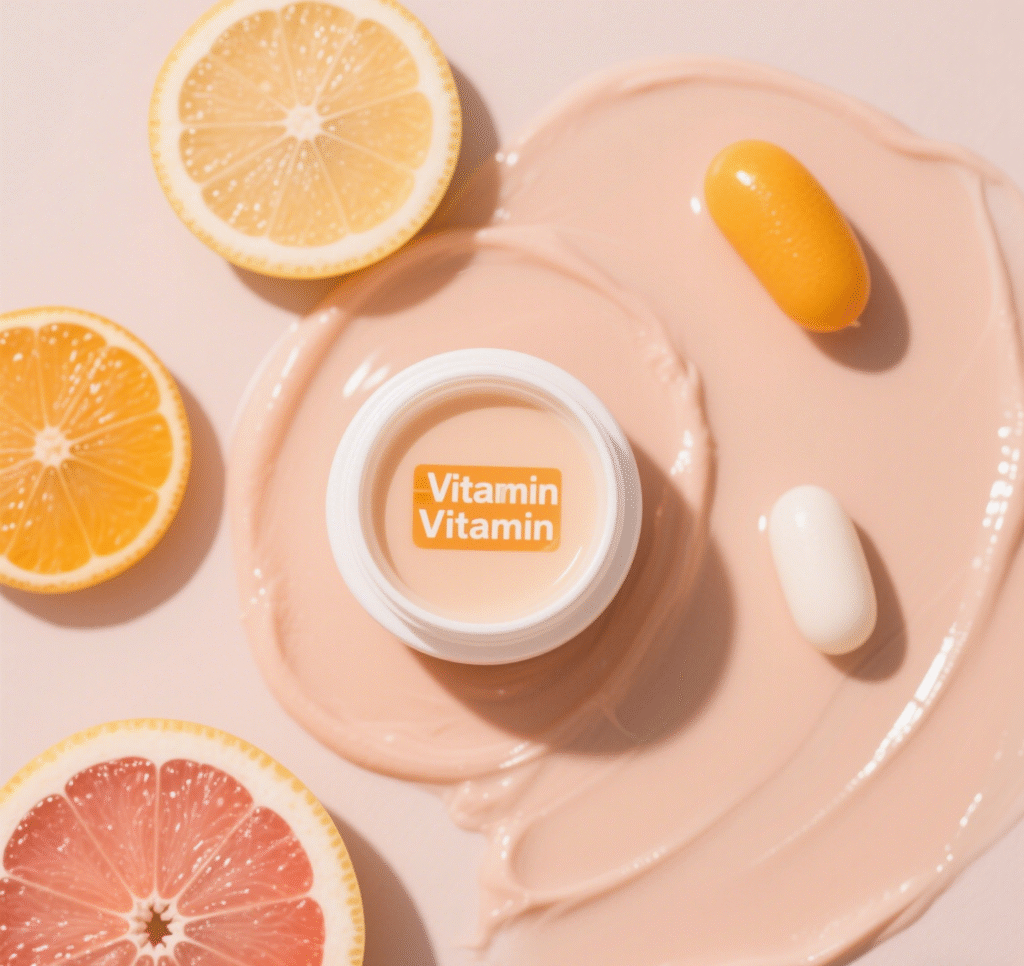Men’s Spring-Summer Fashion Show: A Symphony of Style and Innovation

Nutrition is a cornerstone for maintaining skin health
and vitamins are integral to a complete skincare routine. This guide will explore the benefits of different vitamins for skin and explain how to include them in your daily life.
I. Vitamin A
Vitamin A, or retinol, is well – known for accelerating cell renewal and reducing aging signs. By boosting collagen production, it preserves the skin’s structure, minimizing fine lines and wrinkles. Foods such as carrots, sweet potatoes, spinach, and liver are excellent sources of this vitamin. However, excessive intake can be detrimental, so seeking advice from a healthcare provider for personalized guidance is crucial.
II. Vitamin C
As a powerful antioxidant, Vitamin C is essential for skin health. It safeguards the skin from environmental harm, stimulates collagen formation, and enhances skin brightness. Citrus fruits, strawberries, bell peppers, and broccoli are rich in vitamin C. Regularly consuming these foods can improve skin texture and combat free radical damage.
III. Vitamin E
Famed for its antioxidant qualities, Vitamin E neutralizes free radicals, shielding the skin from oxidative stress. It helps prevent premature aging and moisturizes dry, irritated skin. Nuts, seeds, spinach, and avocados are great sources of vitamin E. Adding them to your diet can support proper skin function.
IV. Vitamin D
Vitamin D is vital for overall well – being, including skin health. It regulates immune responses, reduces inflammation, and aids in wound healing. Sunlight prompts the body to produce vitamin D, but dietary sources like fatty fish, fortified dairy products, and egg yolks can also contribute. Consult a healthcare professional if you suspect a deficiency.
V. B Vitamins
The B – vitamin complex, including B2, B3, B5, B6, B7, B9, and B12, is key to maintaining healthy skin. These vitamins strengthen the skin barrier, alleviate dryness and inflammation, and promote a youthful appearance. Whole grains, legumes, leafy greens, eggs, and lean meats are rich in B vitamins. Incorporating them into your diet can enhance overall skin condition.
VI. Other Essential Skin – Nourishing Nutrients
Besides vitamins, other nutrients are indispensable for healthy skin. Zinc controls oil production and promotes wound healing, while selenium protects against oxidative stress. Omega – 3 fatty acids maintain skin moisture and reduce inflammation. Foods like oysters, nuts, seeds, and fatty fish can supply these vital nutrients.
VII. Adding Vitamins to Your Skincare Routine
In addition to dietary intake, topical application of vitamins can enhance your skincare routine. Look for serums or creams with vitamins A, C, and E to address specific skin issues. These products can improve skin tone, texture, and radiance. Choose reliable brands and consult a skincare expert to find the best products for your skin type.
VIII. The Necessity of a Balanced Diet
Although vitamin – enriched skincare products are beneficial, they should be combined with a balanced diet. A comprehensive approach that includes a variety of fruits, vegetables, whole grains, lean proteins, and healthy fats will supply all the vitamins and nutrients needed for optimal skin health.
IX. Conclusion
To achieve healthy, luminous skin, it’s essential to nourish your body internally. Incorporating vitamins into your diet and skincare routine can support various aspects of skin health, from collagen synthesis and anti – aging to environmental protection. Always seek personalized advice from a healthcare professional to ensure a balanced skincare approach.
© 2022 All Rights Reserved.
